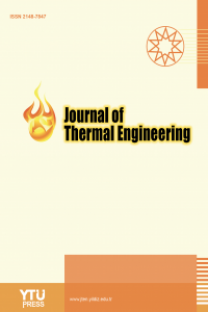Refrigerant progression - an investigation into eco-sustainability with evolution and viability of fourth generation refrigerants
Global warming is one of the most pressing issues the world is facing today. The refrigeration sector, one of the major contributors to global warming, needs to follow a methodological approach to address this issue. This paper evaluates the overall warming impact along with the thermodynamic performance of the different generations of refrigerants in the cascade refrigeration system. The main aim of this comparative study is to present a comprehensive outlook on the environmental impact of refrigerants. A different perspective on refrigerant selection to reduce global warming is also discussed. R600a, R290, R12, R22, R134a, R152a, R245fa, R1234yf, and R1234ze are used in the high-temperature circuit, while R32 is used in the low-temperature circuit. Exergy and energy analyses are done for thermodynamic performance, and total equivalent warming impact (TEWI) assessment is carried out to show global warming produced. While the refrigerant couple R152a/R32 shows the best thermodynamic performance with maximum COP, minimum exergy destruction, and maximum second law efficiency, R1234yf/R32 displays the worst thermodynamic performance. R12/R32 shows maximum TEWI while R290/R32 shows minimum TEWI. The first-generation refrigerants are found to be most environmentally friendly followed by the third and fourth. Fourth-generation refrigerants have the highest indirect emissions, which make their TEWI comparable to R134a. It is concluded that thermodynamic performance plays a significant role in reducing TEWI as indirect emissions account for the major part of the TEWI, and therefore, the global warming potential cannot be the only basis for refrigerant selection. This study suggests that first-generation refrigerants and R152a can be better alternatives.
___
- The article references can be accessed from the .pdf file.
